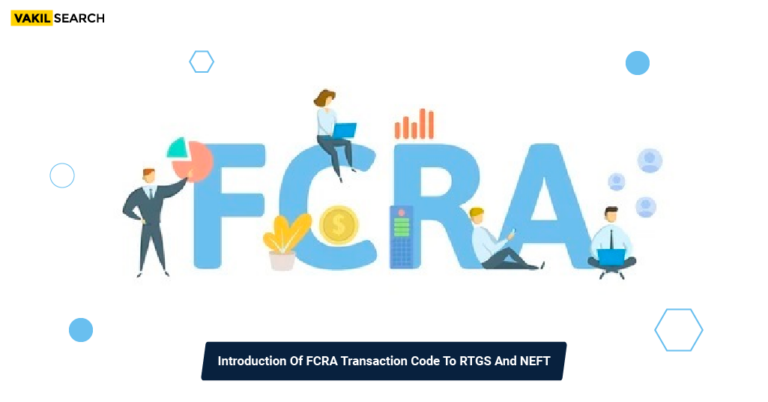Check out this article, to learn about NGOs registration procedure and payment.
A Non-governmental Organisation (NGO) is a philanthropic and social organisation founded by a collection of individuals. Its mission is to promote non-profit goals such as business, art, science, sports, education, research, social welfare, religion, charity, environmental protection, and other philanthropic causes. An NGO uses all of its income to further such goals.
The World Bank defines NGOs as “private organisations which operate to relieve suffering, promote the interests of the poor, preserve the environment, offer basic social services, or engage in community development”. The primary reason to be called non-profit is that their operation is completely for others and don’t gain any kind of profit from their activities for themselves. Because these organisations do tasks that the government should have done, they are referred to as non-governmental organisations.
Eligibility Criteria to Establish an NGO
- If the NGO is to be formed as a private limited company, it must have at least two directors
- There must be three directors in case of a public limited company.
- There must be 200 members max. In a private limited company whereas there is no member limit in the case of a public limited company.
- There is no payment for registering as an NGO.
Setting up a Non-Governmental Organisation allows you to work for the welfare and advancement of society. To register an NGO, you must first know what they are, how they function, and the registration procedures. NGOs are classified into three types: Section 8 companies, societies, and trusts.
A specific set of rules must be followed in order to run an NGO correctly. While registering your NGO, you need to be aware of the different laws that govern registration of different organisations, as mentioned below.
- Section 8 of the Companies Act of 2013 governs company registration
- The Trust Act of 1882 governs trust registration.
- The Societies Registration Act of 1860 governs society registration.
Commonly Prohibited Acts
NGOs that accept foreign funds should take precautions to avoid breaking the restrictions of the Foreign Contribution (Regulation) Act, 2010. Below are a few common acts that can invite hefty penalties and legal actions:
- Accepting foreign contributions without registration or prior authorisation.
- Accepting foreign contributions in multiple bank accounts despite FCRA registration?
- Failure to file yearly returns in the appropriate form.
- Providing incorrect information in the annual report.
- Failure to maintain the accounting records by NGOS with FCRA certification.
- Non-FCRA registered NGOs receive foreign contributions on behalf of other NGOs.
- Failure to file a nil return in the year in which a foreign donation is received.
- The use of finances for purposes is different from those for which they were intended.
- Failure to keep different account records
- Combining domestic and international funds.
Additional Violations
- Providing incorrect information or seeking prior approval or registration through deception, false representation, or suppression of material fact.
- Accepting or supporting any individual, political party, or organisation in receiving a foreign contribution, currency, or security from a foreign source.
Compoundable Violations
The FCRA Department, in a notification printed in the Gazette of India on June 16, 2016, outlined the list of violations that are compoundable in form. The various authorities indicated in the Gazette may proceed with such compounding. In other words, any such infraction is compoundable upon completion of the penalty for the respective offences listed in the Gazette, as directed by the relevant authority.
Learn how to make payment for NGO registration with different payment options available and ensure a hassle registration process for your non-profit organization.
Payment For NGO Registration
The overall cost of forming a corporation varies by state. Here is a list of NGO registration charges:
- The overall cost of incorporating a section 8 company, comprising government and professional costs, is ₹4,999.
- The entire cost of trust registration would be ₹13,999, covering government and professional costs.
- The overall cost of registering a society, involving government and professional costs, is ₹ 12,999.
Registration Period
- NGO Registered under Section 8 Companies Act, 2013, takes around 10-14 working days.
- The Trust incorporation process takes approximately 20 working days, subject to departmental verification.
- The Society registration process takes approximately 25 working days, subject to departmental verification.
How Much Tax Do You Pay?
A trust is subject to the same taxation as an individual under the same slab rates (being neither a senior nor a super senior citizen).
The Advantages Of NGO Registration
The following are some of the advantages of registering your organisation under the NGO of Companies Act, 2013:
- Tax breaks: Register your firm as an NGO:https://ngodarpan.gov.in/ under the Companies Act of 2013, and reap many tax benefits for the company’s directors. NGOs are excluded from numerous taxes, allowing the corporation to save money and invest in new projects.
- Reduced Share Capital: All companies require a minimum share capital to run freely. This is not the case with NGOs because they can be actively sponsored through donations. Subscriptions might also assist the company’s legal proceedings. This implies that NGOs do not require a larger percentage of capital to operate freely.
- Title Application: Many businesses are required to disclose their limited liability status. This is not true for corporations formed under the Companies Act. These established companies are not permitted to use any titles. They can operate without disclosing their limited liability status, which is a substantial strength for the business in terms of the capital they must disclose.
- Stamp Duty Loophole: Under the Income Tax Act of 2013, all firms established as NGOs are exempt from stamp duty, resulting in further tax savings for the company. Therefore, all of the stamp duty savings are allocated to the advancement of the company’s adopted motto. Exemption from stamp duty safeguards finances for the company, allowing it to operate more smoothly and efficiently, improving its production.
- Ownership/titles transfer: Companies registered as NGOs under the Income Tax Return Act of 1961 are not limited in their ability to transfer ownership or claims to earned interests. On the other hand, other companies have very restricted rights while transferring the ownership.
Bottom Line
Please follow the processes outlined above to legally and securely Incorporate an NGO Registration and successfully continue with your philanthropic activities. If you require further assistance with regard to NGO registration, connect with Vakilsearch, a reliable platform that aids in satisfying your legal needs.










